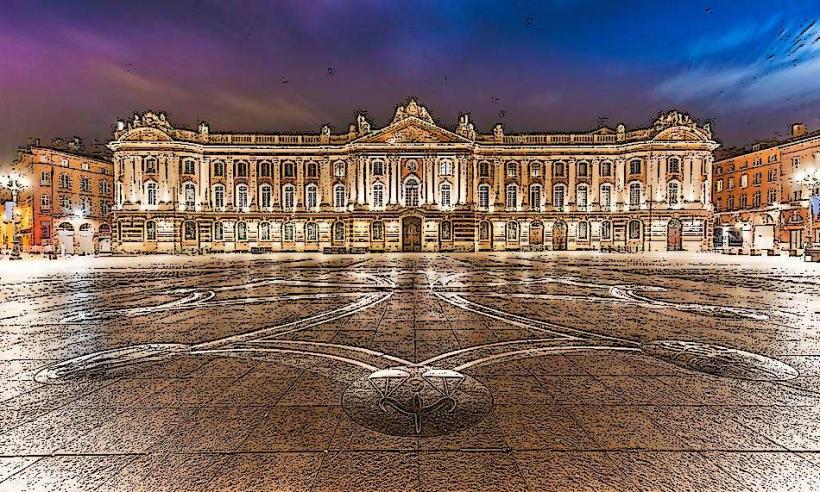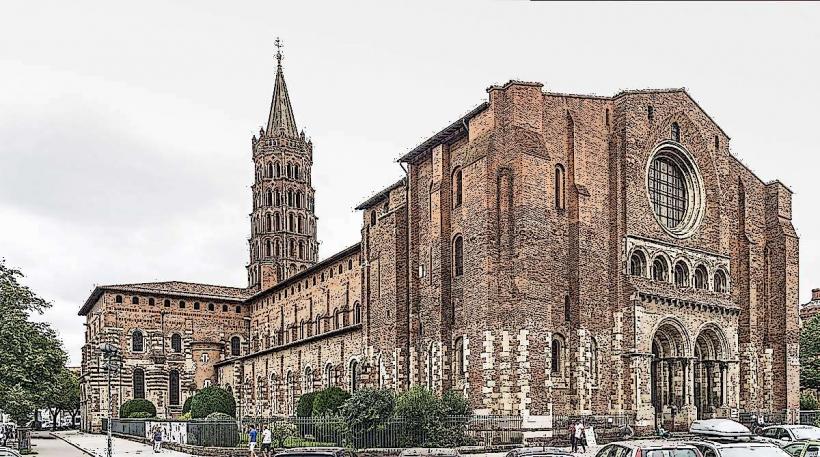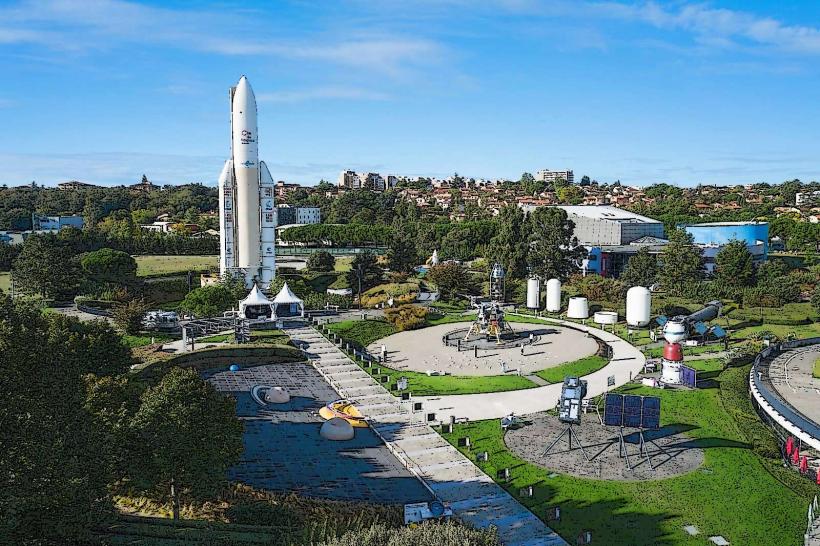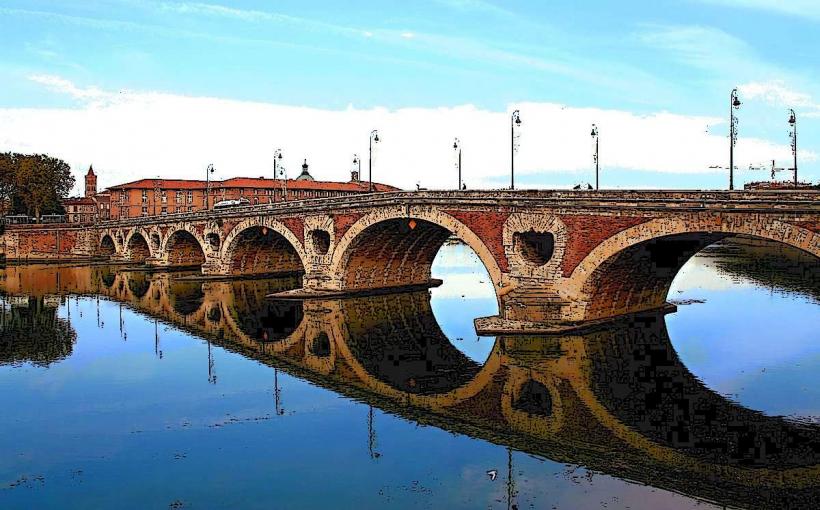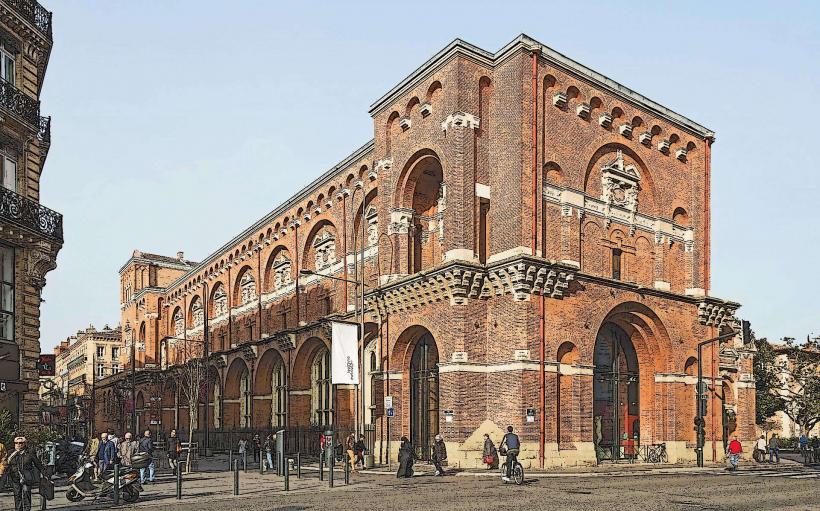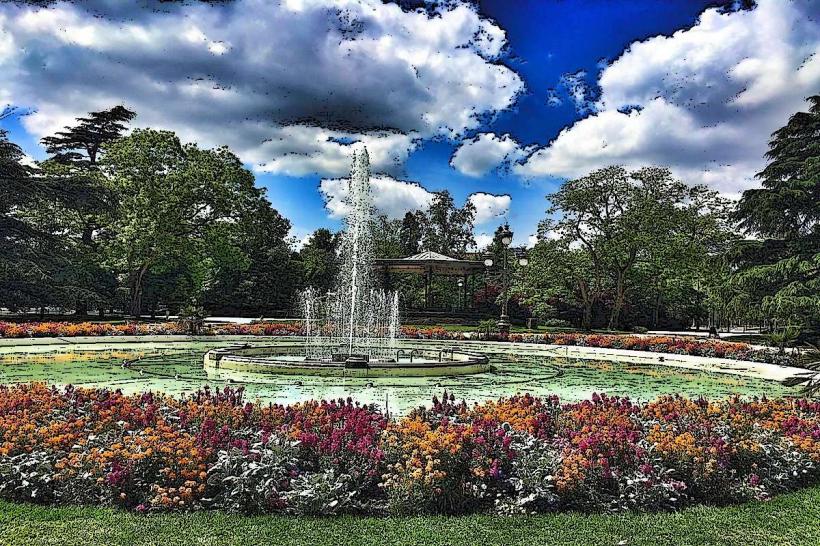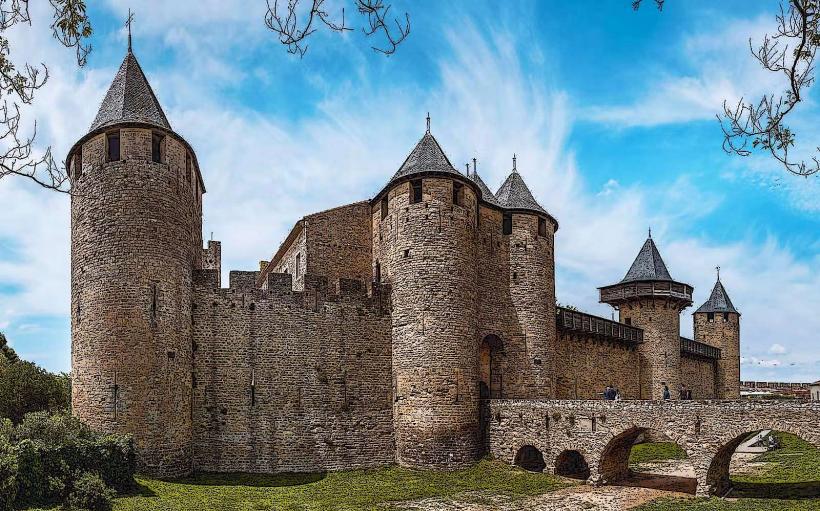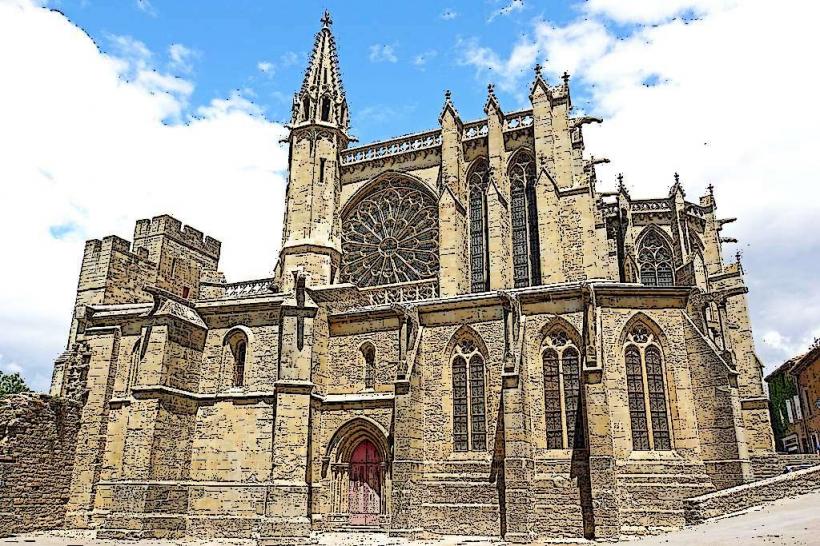Information
City: ToulouseCountry: France
Continent: Europe
Toulouse, often referred to as "La Ville Rose" (The Pink City), is a vibrant city located in the southwest of France, near the Pyrenees mountains and the Mediterranean coast. It is the capital of the Occitanie region and the Haute-Garonne department. Known for its stunning brick buildings, rich history, and vibrant cultural scene, Toulouse is a city that blends a proud heritage with modern innovation, particularly in the aerospace industry.
Here is a detailed overview of Toulouse:
1. History of Toulouse
Toulouse has a long and varied history that stretches back over two millennia. Its past is marked by several key historical periods that have shaped its character today.
Roman Toulouse (Tolosa): Toulouse was originally a Roman settlement and an important administrative center. The city was the capital of the Roman province of Gallia Tolosa. Many traces of its Roman past can still be found in Toulouse, including the Pont Neuf, an ancient bridge, and the Basilica of Saint-Sernin, one of the largest Romanesque churches in Europe.
Medieval Toulouse: During the Middle Ages, Toulouse was a major intellectual and cultural center. The city was the capital of the County of Toulouse and played a pivotal role in the Cathar heresy during the 12th and 13th centuries. The Albigensian Crusade (1209–1229) was launched by the Catholic Church to suppress the Cathar movement, and Toulouse was heavily involved in these events. The medieval period also saw the construction of many of Toulouse's most famous buildings, including the Capitole de Toulouse and Hotel d'Assezat.
Renaissance to Modern Times: In the Renaissance, Toulouse became an important center of the textile industry, particularly in producing the famous pastel dye. During the 19th and 20th centuries, Toulouse emerged as a hub of aerospace technology, with major industries like Airbus and Arianespace establishing their headquarters in the city.
2. Key Landmarks and Attractions
Toulouse is rich in architectural and historical landmarks, many of which showcase the city’s history and culture. The most notable attractions include:
Place du Capitole (Capitole Square): The Capitole is the heart of Toulouse, where the City Hall and the Theatre du Capitole are located. The square is a grand, open space surrounded by imposing classical buildings, including the Capitole building itself, which dates back to the 16th century. The building’s façade is adorned with statues of French kings, and its interior is equally impressive with grand halls and murals.
Basilica of Saint-Sernin: A UNESCO World Heritage Site, the Basilica of Saint-Sernin is one of the most important Romanesque buildings in Europe. Its impressive architecture includes a large, bell-tower and magnificent sculptures. The basilica was a major stop on the Camino de Santiago pilgrimage route and is dedicated to Saint Sernin, the first bishop of Toulouse.
Le Couvent des Jacobins: This former Dominican monastery, built in the 13th century, is a masterpiece of Gothic architecture. Its cloisters, church, and bell tower (known as the "palm tree") are notable for their exceptional design and intricate stonework. The convent is now home to a cultural center and hosts exhibitions.
Pont Neuf (New Bridge): The Pont Neuf is a historic bridge spanning the Garonne River, which connects the two sides of Toulouse. Although its name suggests it’s “new,” it was actually completed in the early 17th century, making it the oldest bridge in Toulouse. The bridge is an excellent vantage point for views of the river and the city.
Musée des Augustins (Museum of Fine Arts): The Musée des Augustins is housed in a former Augustinian convent and is one of Toulouse’s most important museums. It contains an extensive collection of European art from the Middle Ages to the 20th century, including works by Renaissance and Baroque artists. The museum also has an impressive collection of sculptures.
Cité de l'Espace (Space City): For those interested in science and aerospace, Toulouse is home to the Cité de l'Espace, an interactive museum dedicated to space exploration. Visitors can learn about the history of space travel, view life-size models of spacecraft, and explore exhibits on space missions, including Airbus’s role in the development of spacecraft.
Hotel d'Assezat: Built in the late 16th century, the Hotel d'Assezat is a magnificent mansion in Toulouse. The building’s façade is renowned for its beautiful Renaissance architecture. It is now home to the Bemberg Foundation, an art museum showcasing a collection of European paintings, including works by Renoir, Toulouse-Lautrec, and Goya.
Jardin des Plantes (Botanical Garden): This large, beautiful garden is one of Toulouse’s main green spaces. Located next to the Muséum d'Histoire Naturelle, it features walking paths, flower beds, and ponds. The garden is a peaceful escape from the bustling city and a great place for relaxation.
Les Abattoirs (Museum of Contemporary Art): Housed in a former slaughterhouse, Les Abattoirs is Toulouse's contemporary art museum. It hosts exhibitions of modern and contemporary art, as well as events and performances. The building itself has been beautifully preserved and repurposed for cultural use.
3. Aerospace Industry in Toulouse
Toulouse is the center of Europe’s aerospace industry and home to Airbus, one of the world’s leading manufacturers of commercial aircraft. The city’s role in aviation and space exploration has earned it a reputation as the "European Capital of Aeronautics."
Airbus Headquarters: Airbus, headquartered in Toulouse, is one of the largest manufacturers of commercial aircraft in the world. Visitors can tour the Airbus facilities, where they can learn about aircraft production and see the assembly of the A380, the world’s largest passenger airliner.
Aerospace Museums and Exhibitions: Toulouse hosts numerous aerospace-related attractions, such as the Aerospace Museum, which houses displays of aircraft, engines, and space exploration artifacts.
4. Toulouse’s Culinary Scene
Toulouse offers a vibrant culinary tradition, deeply rooted in the region’s southwestern French culture.
Cassoulet: Toulouse is famous for cassoulet, a rich stew made with beans, meat (often duck, sausage, and pork), and vegetables. It is a staple of the local cuisine and can be found in many restaurants in the city.
Foie Gras: Toulouse is a region where foie gras is a delicacy, and many local restaurants offer this iconic French dish as part of their menu.
Local Markets: Toulouse has a range of open-air markets where visitors can purchase fresh produce, cheese, meats, and pastries. Marché Victor Hugo is a particularly popular market for those seeking gourmet food.
Wine and Armagnac: Toulouse is also located in the Occitanie region, an area known for its wine and the brandy Armagnac, produced in nearby Gascony. Local wines such as Fronton and Gaillac are often paired with regional dishes.
5. Festivals and Events
Toulouse hosts a wide range of cultural events throughout the year.
Les Champs Elysées (Cultural Festival): Held annually, this festival brings together a variety of performances, including theater, dance, concerts, and film. It celebrates the rich cultural diversity of Toulouse.
Rio Loco Festival: A popular music festival that focuses on world music, particularly Latin American and African genres, Rio Loco takes place each summer along the banks of the Garonne River.
Toulouse International Film Festival (Fête du Court-Métrage): This annual film festival celebrates short films from around the world and is an important event for the international film community.
6. Transportation
Toulouse is well-connected and easy to explore.
By Air: Toulouse-Blagnac Airport is an international airport located just outside the city, offering flights to various domestic and international destinations.
By Train: The Toulouse-Matabiau train station is the main railway station and offers fast connections to Paris, Bordeaux, and other French cities, as well as regional destinations.
Public Transport: Toulouse has an extensive public transport system, including buses, trams, and a metro, which makes it easy to explore the city. VélôToulouse is a bike-sharing service that allows visitors to rent bicycles to explore the city at their own pace.
7. Conclusion
Toulouse is a city where the past and future converge. With its pink brick architecture, rich history, vibrant cultural scene, and strong ties to the aerospace industry, Toulouse offers a unique blend of old-world charm and modern innovation. Whether you're exploring its historical landmarks, enjoying its culinary delights, or learning about space and aviation, Toulouse is a city that offers something for everyone.

